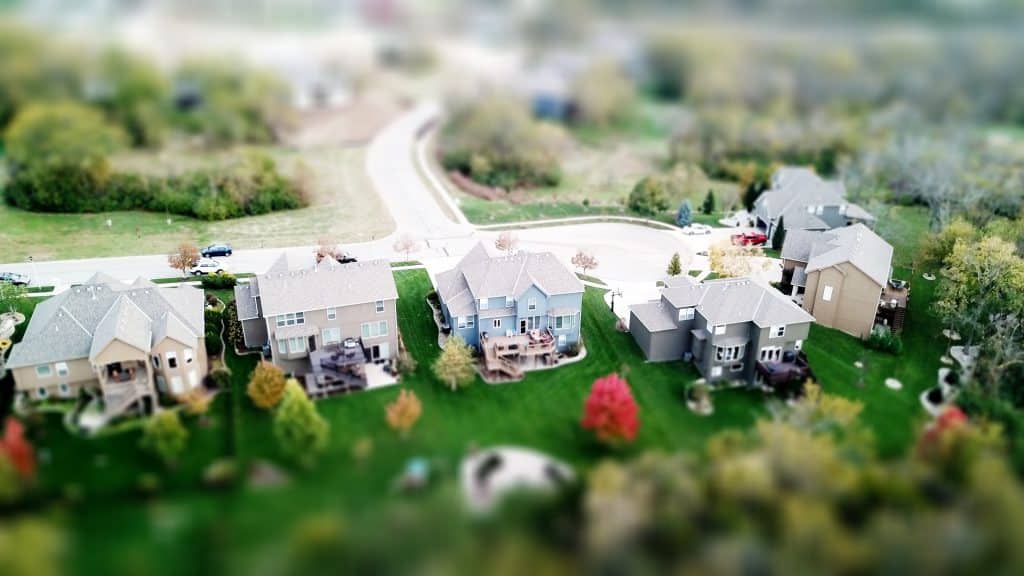If you’re a homeowner or considering buying a property, understanding the cost of a home appraisal is essential for making informed decisions and maximizing your investment.
A home appraisal is an unbiased assessment of a property’s value conducted by a licensed appraiser. It is a crucial step in the home buying and selling process as it determines the fair market value of the property. The appraisal not only helps buyers and sellers make informed decisions, but it also provides lenders with an objective evaluation of the property’s worth.
Several factors influence the cost of a home appraisal, and understanding them is key to unlocking the true value of your property. In this blog post, we will delve into these factors and explore the benefits of getting a professional home appraisal.
We will begin by providing an overview of the home appraisal process, including what happens during an appraisal and the role of a licensed appraiser. We will also discuss the different appraisal methods and approaches used to determine the value of a property, highlighting the importance of accurate property measurements.
Next, we will explore the factors that influence home appraisal costs. We will examine how location and regional market trends play a role in determining appraisal fees, using case studies from different areas to illustrate the variations. Additionally, we will discuss how the size, complexity, condition, and age of a property impact its appraisal cost, along with the significance of recent sales and market data.
To provide a comprehensive understanding, we will present average home appraisal costs in different locations, focusing on major cities and suburban areas. Through real-life case studies, such as the cost of a home appraisal in Los Angeles and Chicago, we will shed light on the variations in appraisal fees.
In the following section, we will share valuable tips on how to reduce home appraisal costs. From selecting a reputable appraiser to preparing your property for appraisal and providing relevant documents and information, we will equip you with practical strategies to make the appraisal process more cost-effective.
In conclusion, we will recap the key points discussed throughout the blog post and emphasize the importance of being aware of home appraisal costs. Understanding the factors that influence these costs will empower you to make informed decisions when it comes to buying, selling, or refinancing your property. We encourage you to seek professional advice from experienced companies like Atled Enterprises for your specific situation and leverage the insights shared in this post to unlock the true value of your home.
Understanding the Process of Home Appraisal
An accurate home appraisal is crucial for both buyers and sellers in the real estate market. It provides an objective evaluation of a property’s value and helps determine a fair price. To truly comprehend the cost of a home appraisal, it’s essential to understand the process involved.
During a home appraisal, a licensed appraiser conducts a thorough inspection of the property. They assess various aspects, including its size, condition, features, and location. The appraiser will also consider recent sales data of comparable properties in the area to determine the fair market value.
The role of a licensed appraiser is pivotal in the appraisal process. These professionals have in-depth knowledge and expertise in evaluating properties. They are trained to analyze market trends, assess property conditions, and calculate accurate valuations.
There are different methods and approaches used in home appraisals. The most common method is the sales comparison approach, where the appraiser compares the subject property to recently sold properties with similar characteristics. Another approach is the cost approach, which estimates the value based on the cost to replace the property. Additionally, the income approach is used for income-generating properties such as rental properties or commercial buildings.
Accurate property measurements are vital in the appraisal process. Appraisers measure the property’s square footage, including both living areas and additional structures like garages or sheds. Accurate measurements ensure that the appraisal reflects the true size of the property, which can significantly impact its value.
The time frame for a home appraisal can vary depending on several factors, such as the size and complexity of the property, as well as the appraiser’s availability. On average, it can take anywhere from a few days to a couple of weeks to complete the appraisal process. It’s important to consider this time frame when scheduling the appraisal, especially if you have specific deadlines to meet.
In summary, a home appraisal involves a comprehensive evaluation of a property’s value by a licensed appraiser. The process includes an inspection of the property, analysis of market data, and consideration of different appraisal methods. Accurate property measurements and a reasonable time frame are crucial elements of the appraisal process. Understanding these aspects will help you appreciate the significance of a home appraisal and its associated costs.
Factors Influencing Home Appraisal Cost
The cost of a home appraisal can vary significantly based on several factors. Understanding these factors will provide insight into why the cost may differ from one property to another.
- Location and Regional Market Trends
The location of a property plays a significant role in determining the cost of a home appraisal. Properties located in major cities or high-demand areas generally have higher appraisal costs due to the increased market activity and demand for appraisers’ services. For example, in a bustling metropolis like New York City, where the real estate market is highly competitive, the cost of a home appraisal is likely to be higher compared to a small town in a rural area.
Regional market trends also influence appraisal costs. In areas experiencing rapid growth and high demand, the cost of appraisals may rise as appraisers’ services become more sought after. On the other hand, in markets with slower activity or a surplus of appraisers, the cost may be relatively lower.
To illustrate, let’s consider two case studies:
- Home Appraisal Cost in New York City: Given the soaring property prices and constant demand for appraisers’ services in the city, the average cost of a home appraisal could range from $600 to $1,200, depending on the property’s size and complexity.
- Home Appraisal Cost in Rural Areas: In contrast, appraisals in rural areas with lower market activity may cost between $300 and $600 on average. These areas often have fewer appraisers, leading to lower demand and subsequently lower costs.
- Size and Complexity of the Property
The size and complexity of a property also impact the appraisal cost. Generally, larger properties require more time and effort for appraisers to evaluate, which can result in higher fees. Additionally, properties with unique features or architectural designs may require specialized expertise, leading to increased appraisal costs.
The square footage of a property is a significant factor in determining its appraisal cost. Larger homes typically have more rooms and amenities, which necessitate additional inspection time for the appraiser. Moreover, expansive properties often have more details to consider, such as multiple bathrooms, custom finishes, or additional structures like swimming pools or guesthouses.
For instance, a spacious five-bedroom house with a large backyard and a detached garage would likely have a higher appraisal cost compared to a small two-bedroom condominium.
- Condition and Age of the Property
The condition and age of a property can also influence the appraisal cost. Appraisers consider the overall condition of a property, including its maintenance and any necessary repairs or renovations. A well-maintained property in excellent condition is likely to have a more favorable appraisal value, while a property in poor condition or requiring significant repairs may have a lower appraisal value.
Properties that have recently undergone renovations or upgrades may require additional analysis from the appraiser to determine their impact on the property’s value. In such cases, the appraisal cost may increase to account for the appraiser’s time and expertise in assessing the improvements.
Similarly, older properties may present unique challenges during the appraisal process. Appraisers must consider factors such as outdated features, potential structural issues, or the need for code compliance updates. These additional considerations can contribute to a higher appraisal cost.
- Comparison of Recent Sales and Market Data
Appraisers rely on recent sales data and market trends to determine the value of a property accurately. Analyzing comparable properties, known as “comps,” is a key aspect of the appraisal process. The appraiser looks for properties in the same area with similar characteristics that have recently sold to establish a baseline for the subject property’s value.
The availability and accessibility of recent sales data can affect appraisal costs. In areas with a high turnover of properties and easily accessible market data, appraisals may be more straightforward and less time-consuming, potentially resulting in lower costs. However, in areas with limited comparable sales or complex market dynamics, appraisers may need to invest more time and effort in researching and analyzing the data, leading to higher appraisal costs.
Understanding these factors that influence home appraisal costs will help you navigate the appraisal process more effectively and anticipate the potential expenses involved. By taking into account location, property size and complexity, condition and age, and the analysis of recent sales and market data, you can have a clearer understanding of the cost associated with obtaining a professional home appraisal.
Understanding the Process of Home Appraisal
An accurate home appraisal is crucial for both buyers and sellers in the real estate market. It provides an objective evaluation of a property’s value and helps determine a fair price. To truly comprehend the cost of a home appraisal, it’s essential to understand the process involved.
During a home appraisal, a licensed appraiser conducts a thorough inspection of the property. They assess various aspects, including its size, condition, features, and location. The appraiser will also consider recent sales data of comparable properties in the area to determine the fair market value.
The role of a licensed appraiser is pivotal in the appraisal process. These professionals have in-depth knowledge and expertise in evaluating properties. They are trained to analyze market trends, assess property conditions, and calculate accurate valuations.
There are different methods and approaches used in home appraisals. The most common method is the sales comparison approach, where the appraiser compares the subject property to recently sold properties with similar characteristics. Another approach is the cost approach, which estimates the value based on the cost to replace the property. Additionally, the income approach is used for income-generating properties such as rental properties or commercial buildings.
Accurate property measurements are vital in the appraisal process. Appraisers measure the property’s square footage, including both living areas and additional structures like garages or sheds. Accurate measurements ensure that the appraisal reflects the true size of the property, which can significantly impact its value.
The time frame for a home appraisal can vary depending on several factors, such as the size and complexity of the property, as well as the appraiser’s availability. On average, it can take anywhere from a few days to a couple of weeks to complete the appraisal process. It’s important to consider this time frame when scheduling the appraisal, especially if you have specific deadlines to meet.
In summary, a home appraisal involves a comprehensive evaluation of a property’s value by a licensed appraiser. The process includes an inspection of the property, analysis of market data, and consideration of different appraisal methods. Accurate property measurements and a reasonable time frame are crucial elements of the appraisal process. Understanding these aspects will help you appreciate the significance of a home appraisal and its associated costs.
Factors Influencing Home Appraisal Cost
The cost of a home appraisal can vary significantly based on several factors. Understanding these factors will provide insight into why the cost may differ from one property to another.
- Location and Regional Market Trends
The location of a property plays a significant role in determining the cost of a home appraisal. Properties located in major cities or high-demand areas generally have higher appraisal costs due to the increased market activity and demand for appraisers’ services. For example, in a bustling metropolis like New York City, where the real estate market is highly competitive, the cost of a home appraisal is likely to be higher compared to a small town in a rural area.
Regional market trends also influence appraisal costs. In areas experiencing rapid growth and high demand, the cost of appraisals may rise as appraisers’ services become more sought after. On the other hand, in markets with slower activity or a surplus of appraisers, the cost may be relatively lower.
To illustrate, let’s consider two case studies:
- Home Appraisal Cost in New York City: Given the soaring property prices and constant demand for appraisers’ services in the city, the average cost of a home appraisal could range from $600 to $1,200, depending on the property’s size and complexity.
- Home Appraisal Cost in Rural Areas: In contrast, appraisals in rural areas with lower market activity may cost between $300 and $600 on average. These areas often have fewer appraisers, leading to lower demand and subsequently lower costs.
- Size and Complexity of the Property
The size and complexity of a property also impact the appraisal cost. Generally, larger properties require more time and effort for appraisers to evaluate, which can result in higher fees. Additionally, properties with unique features or architectural designs may require specialized expertise, leading to increased appraisal costs.
The square footage of a property is a significant factor in determining its appraisal cost. Larger homes typically have more rooms and amenities, which necessitate additional inspection time for the appraiser. Moreover, expansive properties often have more details to consider, such as multiple bathrooms, custom finishes, or additional structures like swimming pools or guesthouses.
For instance, a spacious five-bedroom house with a large backyard and a detached garage would likely have a higher appraisal cost compared to a small two-bedroom condominium.
- Condition and Age of the Property
The condition and age of a property can also influence the appraisal cost. Appraisers consider the overall condition of a property, including its maintenance and any necessary repairs or renovations. A well-maintained property in excellent condition is likely to have a more favorable appraisal value, while a property in poor condition or requiring significant repairs may have a lower appraisal value.
Properties that have recently undergone renovations or upgrades may require additional analysis from the appraiser to determine their impact on the property’s value. In such cases, the appraisal cost may increase to account for the appraiser’s time and expertise in assessing the improvements.
Similarly, older properties may present unique challenges during the appraisal process. Appraisers must consider factors such as outdated features, potential structural issues, or the need for code compliance updates. These additional considerations can contribute to a higher appraisal cost.
- Comparison of Recent Sales and Market Data
Appraisers rely on recent sales data and market trends to determine the value of a property accurately. Analyzing comparable properties, known as “comps,” is a key aspect of the appraisal process. The appraiser looks for properties in the same area with similar characteristics that have recently sold to establish a baseline for the subject property’s value.
The availability and accessibility of recent sales data can affect appraisal costs. In areas with a high turnover of properties and easily accessible market data, appraisals may be more straightforward and less time-consuming, potentially resulting in lower costs. However, in areas with limited comparable sales or complex market dynamics, appraisers may need to invest more time and effort in researching and analyzing the data, leading to higher appraisal costs.
Understanding these factors that influence home appraisal costs will help you navigate the appraisal process more effectively and anticipate the potential expenses involved. By taking into account location, property size and complexity, condition and age, and the analysis of recent sales and market data, you can have a clearer understanding of the cost associated with obtaining a professional home appraisal.
Average Home Appraisal Costs in Different Locations
The cost of a home appraisal can vary depending on the location and regional market trends. To provide a better understanding of appraisal costs in different areas, let’s explore the average costs in major cities and suburban areas.
- Home Appraisal Cost in Major Cities
a. Case Study: Home Appraisal Cost in Los Angeles
Los Angeles is known for its vibrant real estate market and diverse neighborhoods. The cost of a home appraisal in this bustling city can range from $600 to $1,500, depending on various factors such as the property’s size, complexity, and location. With its high demand and competitive market, appraisers in Los Angeles often charge a premium for their services.
b. Case Study: Home Appraisal Cost in Chicago
Chicago, known for its rich architectural heritage and diverse housing market, also has its own appraisal cost dynamics. On average, a home appraisal in Chicago can range from $400 to $900. The specific cost will depend on factors such as the property’s size, condition, and location within the city. While Chicago’s appraisal costs may be relatively lower compared to some other major cities, it’s important to note that prices can vary based on the specific property and appraiser.
- Home Appraisal Cost in Suburban Areas
a. Case Study: Home Appraisal Cost in Orange County
Located in Southern California, Orange County offers a blend of suburban living and proximity to major metropolitan areas. The cost of a home appraisal in Orange County can range from $500 to $1,200. Similar to other suburban areas, the specific cost will depend on factors such as property size, complexity, and location within the county. While Orange County may have higher appraisal costs compared to rural areas, it offers a more affordable option compared to major cities like Los Angeles.
b. Case Study: Home Appraisal Cost in Fairfax County
In the suburban region of Fairfax County, Virginia, which is part of the Washington, D.C. metropolitan area, home appraisal costs can range from $400 to $900. The cost will vary based on factors such as property size, condition, and location within the county. As with any location, the specific circumstances of the property and the appraiser’s expertise will play a role in determining the final appraisal cost.
It’s important to note that the above case studies are meant to provide a general idea of average home appraisal costs in specific locations. Actual costs may vary depending on the specific property, market conditions, and individual appraiser fees.
By understanding the average appraisal costs in different locations, you can better prepare for the expenses associated with obtaining a professional home appraisal. Keep in mind that the value and accuracy of the appraisal are more important than the upfront cost. Therefore, it’s crucial to choose a qualified and reputable appraiser who can provide an accurate assessment of your property’s value.
Tips to Reduce Home Appraisal Costs
While the cost of a home appraisal is an important consideration, it’s also essential to seek ways to minimize these expenses without compromising the quality and accuracy of the appraisal. Here are some valuable tips that can help reduce home appraisal costs:
- Research and Select a Reputable Appraiser
One of the first steps in reducing appraisal costs is to research and select a reputable appraiser. Look for licensed and experienced professionals who have a solid reputation in the industry. Seek recommendations from trusted sources, such as real estate agents or friends who have recently undergone a home appraisal. By choosing a qualified appraiser, you can ensure a thorough and accurate evaluation of your property.
- Prepare the Property for Appraisal
Taking the time to prepare your property for the appraisal can help streamline the process and potentially reduce costs. Consider the following aspects:
- Curb Appeal and First Impressions: Ensure that the exterior of your property is well-maintained and visually appealing. This includes tidying up the landscaping, cleaning the driveway, and ensuring the property looks well-cared-for from the outside.
- Interior Cleanliness and Organization: A clean and organized interior can create a positive impression on the appraiser. Declutter rooms, clean surfaces, and make sure everything is in order. This allows the appraiser to easily assess the property without any distractions.
- Provide Relevant Documents and Information
To help the appraiser accurately assess your property, gather and provide all relevant documents and information. This includes:
- Gathering Property Records and Permits: Compile any relevant property records, such as floor plans, surveys, or permits for renovations or additions. These documents can provide valuable information to the appraiser and potentially reduce the time needed for research.
- Sharing Recent Home Improvements and Upgrades: If you have recently made significant improvements or upgrades to your property, make sure to inform the appraiser. Provide details of the renovations, including the dates, costs, and any permits obtained. This information can positively impact the appraisal value by showcasing the property’s enhanced features and condition.
- Understand the Appraiser’s Process and Ask Questions
Take the time to understand the appraiser’s process and ask questions if you have any uncertainties. By gaining clarity on the appraisal process, you can ensure that you’re well-prepared and can provide any necessary information or access to the appraiser. This understanding can help streamline the appraisal process and potentially reduce costs associated with additional visits or requests for information.
- Consider Appealing an Appraisal if it Seems Inaccurate
If you receive an appraisal that you believe is inaccurate, it may be worth considering an appeal. However, be cautious and consult with professionals, such as real estate agents or attorneys, before proceeding with an appeal. While appealing an appraisal can potentially lead to a revised value, it’s important to evaluate the costs and potential benefits associated with the process.
By implementing these tips, you can potentially reduce home appraisal costs without compromising the quality and accuracy of the appraisal. Remember that while cost is a factor to consider, it’s essential to prioritize the value and expertise provided by a reputable appraiser.
Conclusion
In conclusion, understanding the cost of a home appraisal is essential for homeowners, buyers, and sellers to make informed decisions and maximize their investment in real estate. The factors influencing home appraisal costs include location and regional market trends, size and complexity of the property, condition and age of the property, and the comparison of recent sales and market data.
Location plays a significant role in determining appraisal costs, with major cities typically having higher costs due to higher demand and competitive markets. Suburban areas may have lower costs compared to major cities, while rural areas may have even lower costs due to lower market activity.
The size and complexity of a property also impact appraisal costs. Larger properties require more time and effort to evaluate, while properties with unique features or architectural designs may require specialized expertise.
The condition and age of a property are important considerations as well. Well-maintained properties in excellent condition generally have higher appraisal values, while properties in poor condition or requiring significant repairs may have lower values.
Comparing recent sales and market data is a crucial part of the appraisal process. In areas with limited comparable sales or complex market dynamics, appraisers may need to invest more time and effort, potentially resulting in higher costs.
To reduce appraisal costs, it is recommended to research and select a reputable appraiser, prepare the property by enhancing its curb appeal and cleanliness, provide relevant documents and information, understand the appraiser’s process, and consider appealing an appraisal if it seems inaccurate.
By following these tips and understanding the factors influencing home appraisal costs, individuals can navigate the appraisal process more effectively, minimize expenses, and ensure they receive an accurate assessment of their property’s value.
In summary, while the cost of a home appraisal is an important consideration, it is crucial to prioritize the value and expertise provided by a qualified appraiser. A professional appraisal can provide invaluable insights and help homeowners and buyers make informed decisions in the ever-changing real estate market. Contact Atled Enterprises today for a free quote!
.





